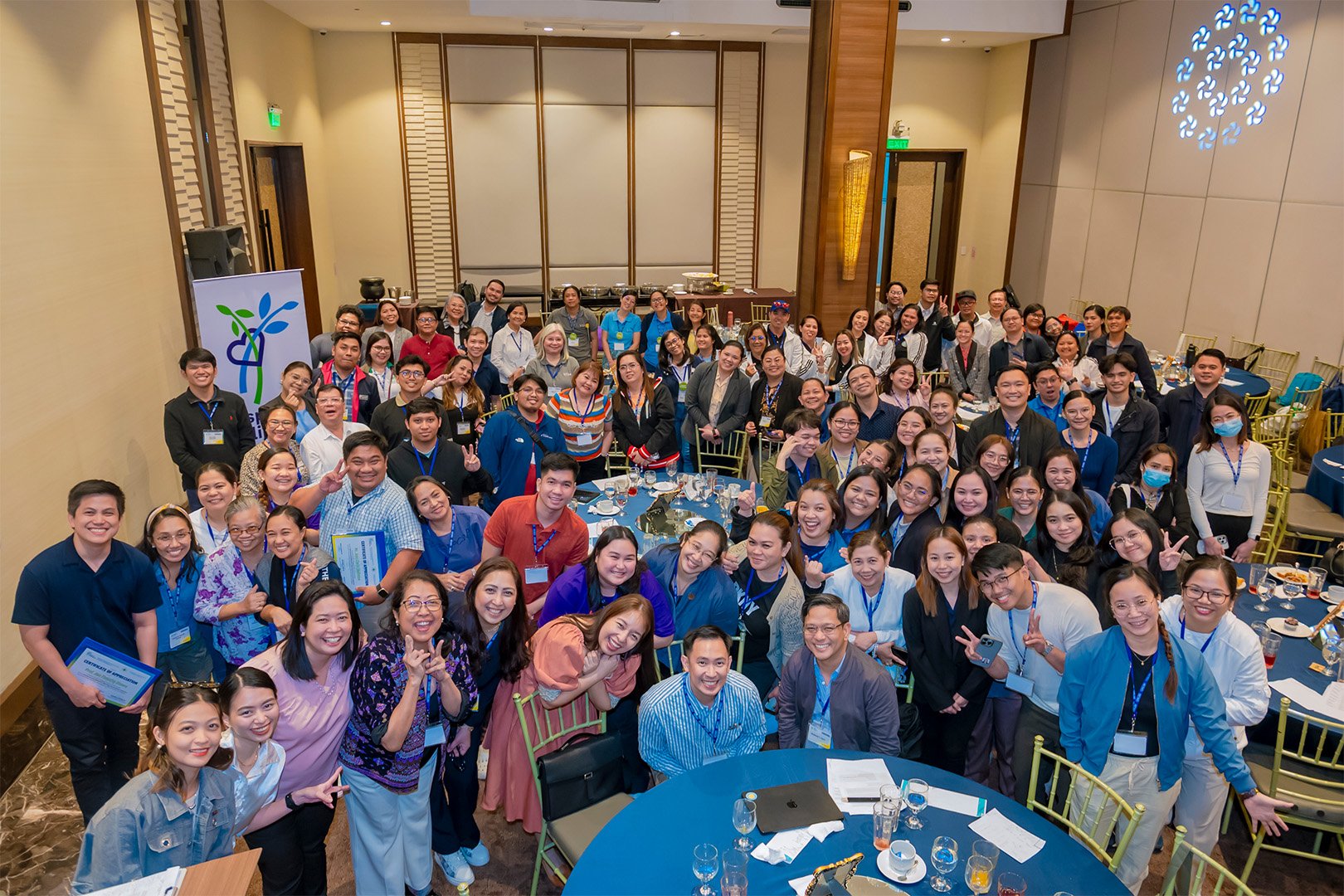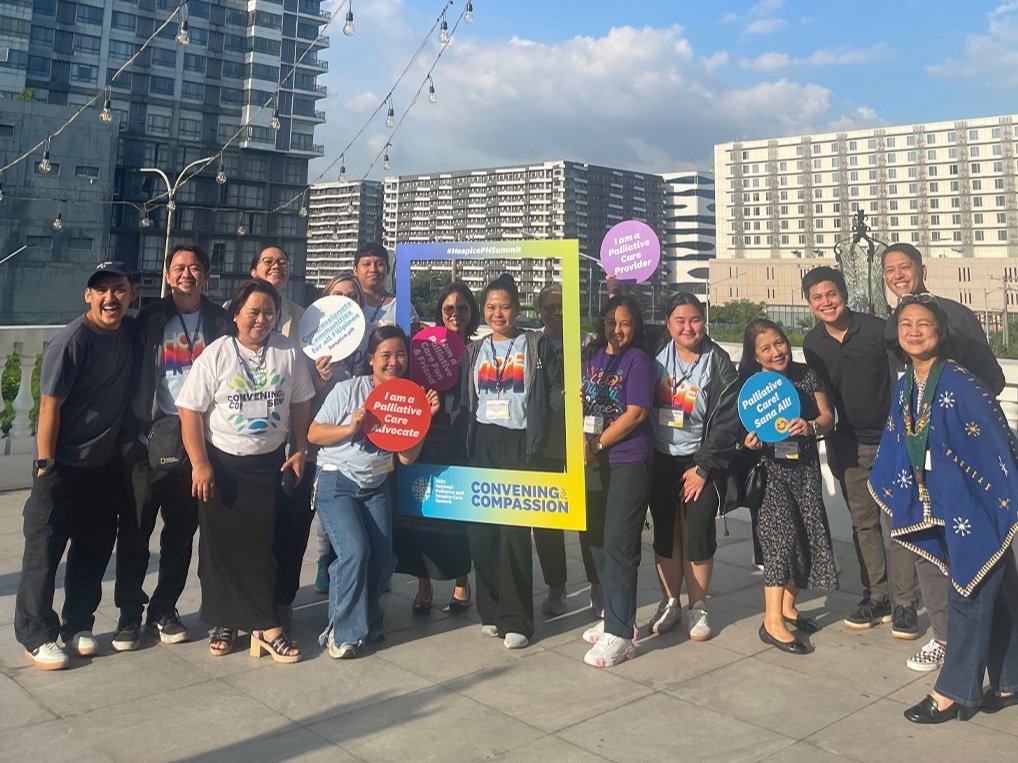The National Palliative and Hospice Care Summit 2024, held on September 25-28 at Casa Ibarra in Pasay City, was a milestone event for palliative care in the Philippines. Organized by Hospice Philippines, and the Philippine Society of Palliative and Hospice Care, the summit gathered healthcare professionals, advocates, and leaders to reflect on the progress of the past 35 years and chart a future of compassionate care for patients facing severe health-related suffering.
Supported by the Department of Health, The Ruth Foundation, Philippine Cancer Society, Asia Pacific Hospice Palliative Care Network, UP-PGH Supportive Palliative and Hospice Medicine, and international partners, the summit served as a platform for establishing the next chapter in palliative care in the Philippines.
Thought Leadership and Key Discussions
To kick off the summit, Associate Professor Ghauri Aggarwal emphasized the values of true compassion. Aggarwal called for a transformational rather than a transactional approach to leadership in healthcare, stressing that genuine compassion is key to elevating the quality of care patients receive.
Dr. Patricia Soek Hui Neo, Senior Consultant at the Division of Supportive & Palliative Care, National Cancer Centre Singapore, shed light on the national standards for palliative care in Singapore. Her insights provided an international perspective on setting benchmarks and policies to ensure that patients receive comprehensive care in the face of terminal illness on a national scale.
Bringing the focus closer to home, Dr. Mae Corvera, president of Hospice Philippines, shared the standards and stepping stones for Philippine hospital-based palliative care services. Her presentation featured the remarkable progress made in integrating palliative care into mainstream healthcare, all while highlighting the enduring challenges and promising opportunities in expanding access to these critical services.
Ivy Abrigo Gough, a clinical nurse consultant from the Palliative Care Consult Service at Concord Repatriation and General Hospital in Australia, added depth to the discussions with her emphasis on the “it takes a village” approach to palliative care. Her presentation showcased the importance of multidisciplinary teams and community support systems in providing holistic care to patients and their families.
Throughout the summit, other esteemed speakers shared their expertise, showcasing the diverse approaches that palliative care can take. Czarina Estonactoc-Cruel provided a moving presentation on the power of music therapy, illustrating how music can be a source of comfort and emotional expression for patients. Dr. Frank Nacario shared his knowledge on a patchy approach to pain management, reminding us that pain relief in palliative care must be as nuanced and individualized as the patients themselves.
Dr. Agnes Bausa-Claudio discussed the transition to home-based palliative care, an essential topic as more families seek the familiarity and comfort of home while providing care for their loved ones. Dr. Alfonso Lagaya presented Pins and Needles: Acupuncture in Palliative Care, shedding light on alternative methods for managing pain and improving quality of life. Additionally, Dr. Suzette Solis introduced the lesser-known but critical topic of Palliative Care in Rabies Infection, expanding the scope of how palliative care can support patients across a range of conditions.
Palliative Care: A Holistic and Compassionate Approach
The Ruth Foundation team had the privilege of participating in the Parallel Session for Nurses and Allied Health Care Professionals. Dr. Maricar Sabeniano, who heads advocacy and training at TRF, opened up and moderated the session.
Patient Care Head Nurse Jelanie Ausan
Different case studies were presented, each one reflecting the unique challenges patients face during their most vulnerable moments. Our Patient Care Head Nurse Jelanie Ausan, and External Affairs Officer Marilou Tupaz were able to share their experiences and valuable insights. While our physical therapist, Tim Rivero also got the chance to share an informative lecture about Preventing Complications of Immobility.
What unfolded was a rich, collaborative effort where nurses and healthcare professionals highlighted essential aspects of palliative care such as pain management, family communication, emotional support, and ethical considerations in care planning. These pillars remind us that palliative care is about far more than addressing physical symptoms; it’s about seeing the person behind the illness, understanding their story, and walking alongside them with compassion and respect.
In addition to participating in the sessions, The Ruth Foundation team managed critical aspects of the event, including logistics, registration, and securing the PRC CPD accreditation for the workshops in collaboration with Hospice Philippines and the Philippine Society of Hospice and Palliative Medicine. Michal Hafalla, alongside Dr. Maricar Sabeniano of the Training & Advocacy team, worked closely with these committees to ensure a smooth and impactful summit.
Palliative care is truly a team effort, where every care plan is an opportunity to uplift, to comfort, and to empower patients to live their days with dignity and peace. At its core, it is all about compassion in action.
Convening for Compassion
The theme of the summit, “Convening for Compassion,” resonated throughout the event, as each speaker and attendee shared a common vision for the future of palliative and hospice care in the Philippines.
As we look ahead, the 2024 National Palliative and Hospice Care Summit serves as a call to action for all stakeholders—government agencies, healthcare professionals, non-government organizations, and communities—to join the movement and work together in shaping a more compassionate future for those facing life-limiting conditions. With ongoing support and collaborative efforts, the Philippines stands poised to continue its journey towards offering high-quality palliative care services that uphold the dignity and unique needs of each individual.
The summit went beyond just a gathering of experts and advocates; it became a celebration of collaboration, community, and the shared commitment to a compassionate approach to healthcare, reflecting on past triumphs and looking forward to a future where palliative care is accessible to all.


















